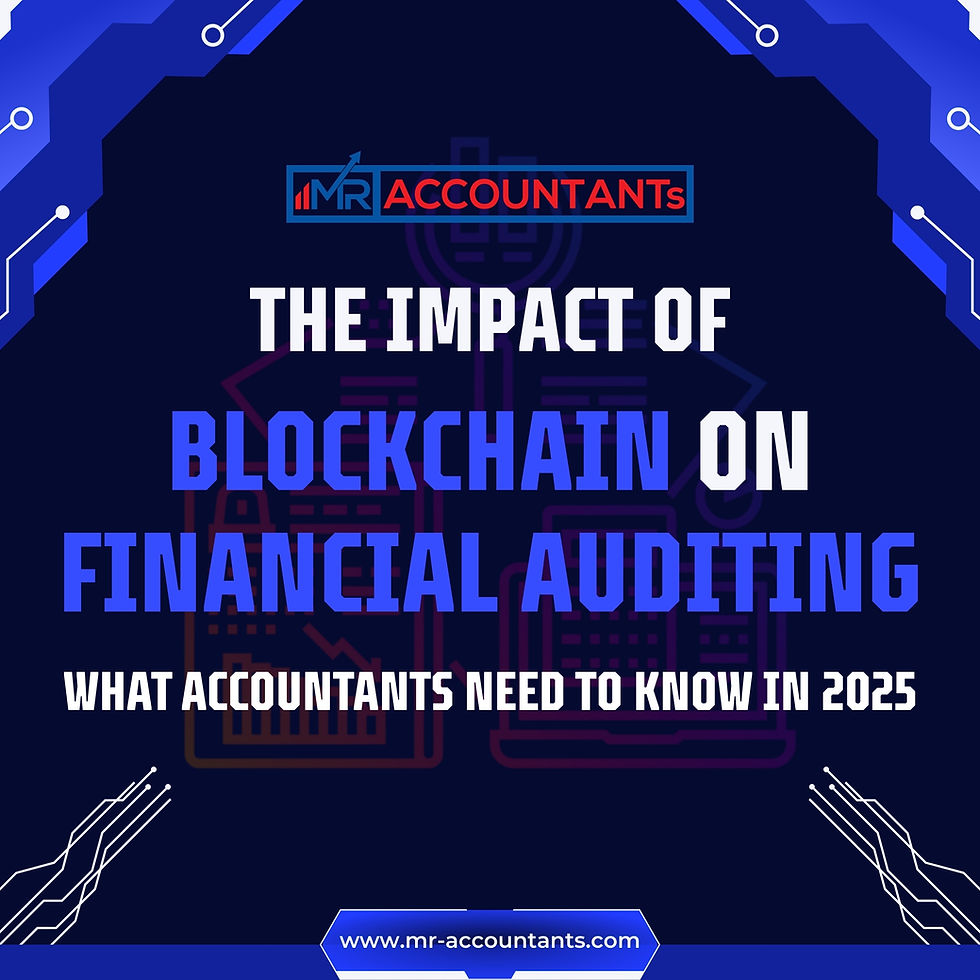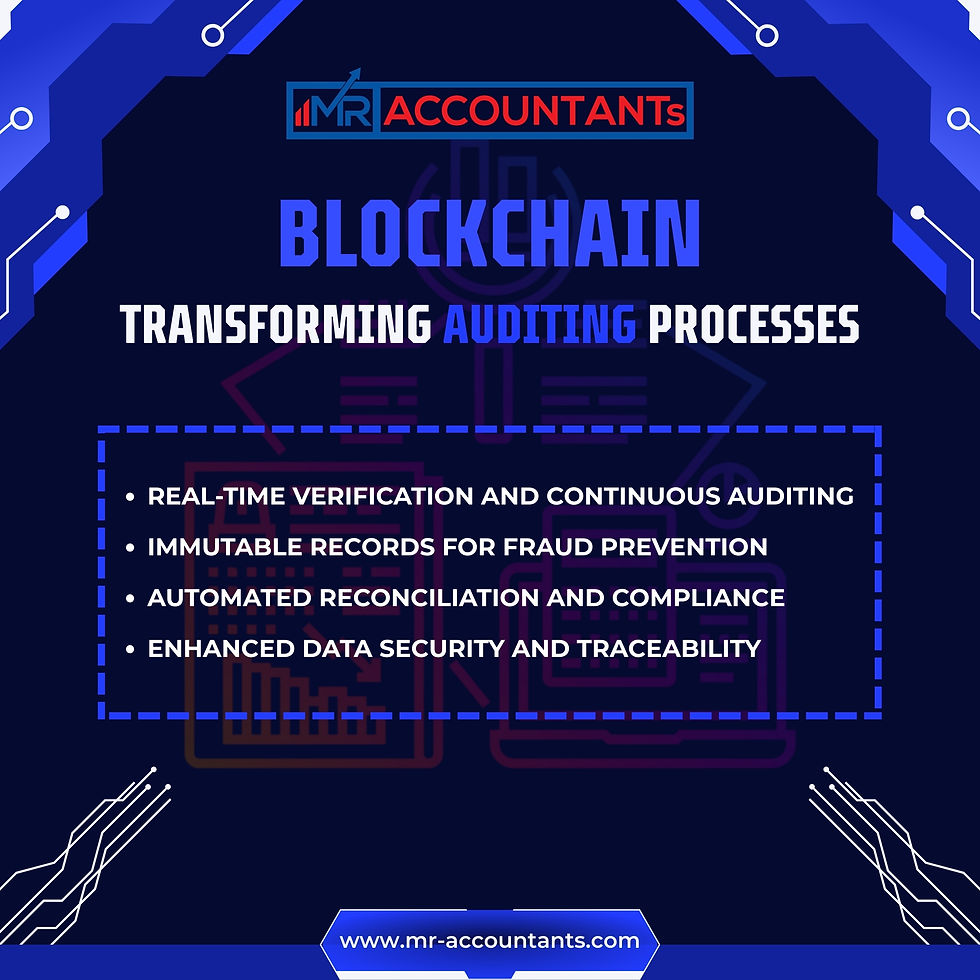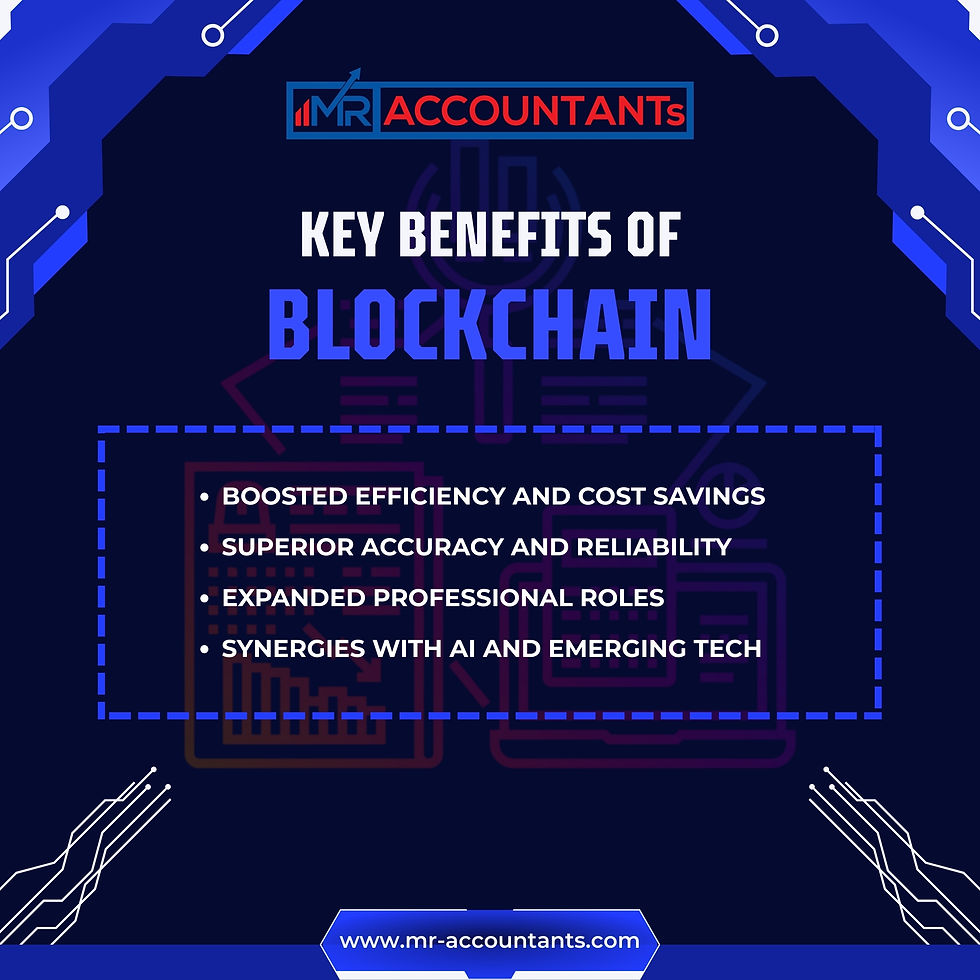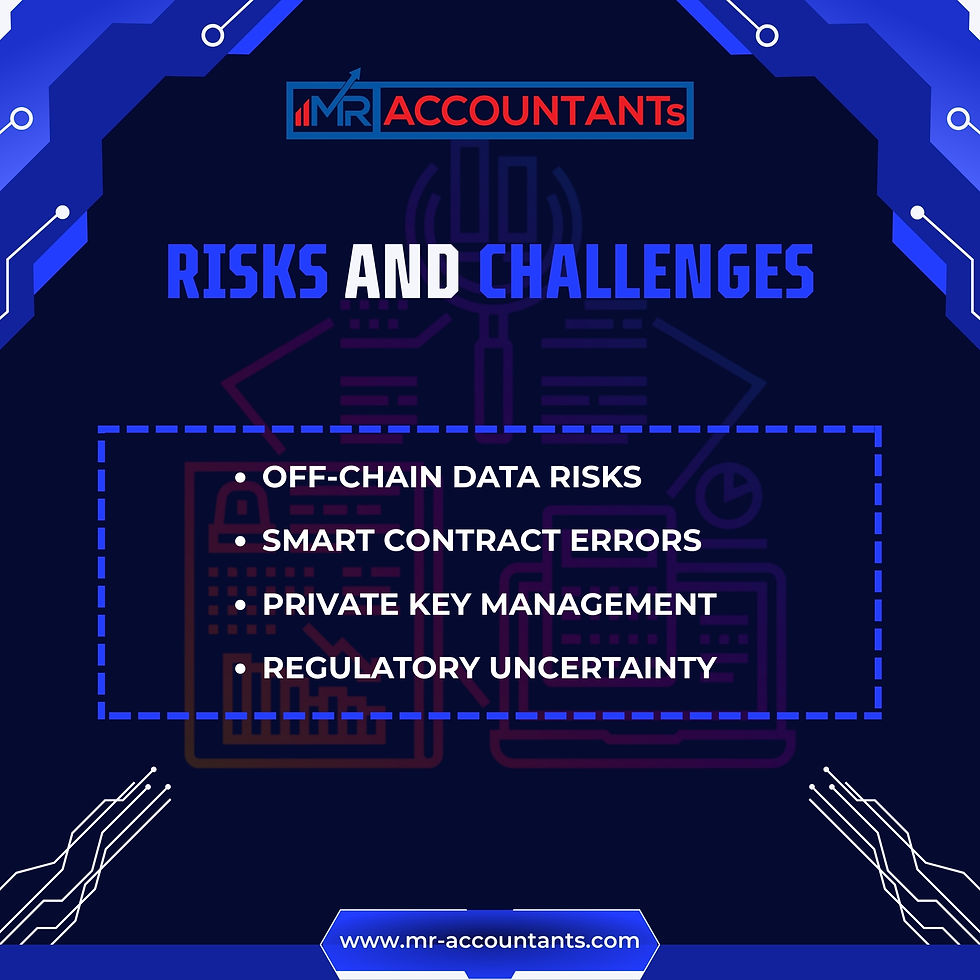The Impact of Blockchain on Financial Auditing: What Accountants Need to Know in 2025
- Prothom
- Aug 12, 2025
- 5 min read

In 2025, as financial scandals continue to undermine trust in traditional systems, blockchain technology is revolutionizing financial auditing. Far beyond its association with cryptocurrencies, blockchain’s decentralized ledger system is transforming how auditors verify transactions, ensure compliance, and combat fraud. With projections indicating blockchain can boost audit efficiency by up to 70% and significantly cut costs, accountants must understand its implications to stay ahead in this rapidly evolving field. This in-depth guide explores how blockchain is reshaping auditing processes, the role of decentralized ledgers, key benefits, challenges, and future trends, equipping accountants with essential insights for navigating this seismic shift.
Understanding Blockchain Essentials: The Foundation for Modern Auditing

To fully grasp blockchain’s impact on financial auditing, it’s essential to understand its core mechanics. Blockchain is a distributed ledger technology (DLT) that records transactions across a network of computers, ensuring unmatched security, transparency, and immutability. Each “block” contains timestamped transactions linked cryptographically to the previous block, forming a tamper-resistant chain.
Unlike centralized databases managed by a single entity, such as a bank or corporation, blockchain operates on a peer-to-peer network where all participants maintain identical copies of the ledger. Consensus mechanisms, like proof-of-work or proof-of-stake, validate new entries, eliminating intermediaries. For auditors, this enables a shift from sampling data during periodic reviews to verifying entire datasets in real-time. Blockchain secures record integrity through complete traceability, fundamentally changing auditing practices. In 2025, when real-time financial reporting demands are surging, this technology is a game-changer for accounting professionals.
How Blockchain is Transforming Auditing Processes in 2025

Blockchain is turning auditing from a reactive, labor-intensive process into a proactive, streamlined operation. Here’s a detailed breakdown of its transformative effects:
Real-Time Verification and Continuous Auditing: Blockchain allows auditors to access live transaction data, enabling continuous monitoring instead of annual reviews. This reduces delays, catches discrepancies instantly, and improves audit quality through automated verification. For example, in supply chain finance, auditors can trace assets from origin to ledger entry in real-time, ensuring accuracy.
Immutable Records for Fraud Prevention: Transactions on blockchain are permanent and unalterable without network-wide consensus, minimizing risks like data manipulation or double-spending. This immutability enhances transparency in financial transactions, with studies showing a 55% higher fraud detection rate in blockchain-adopting firms compared to traditional systems.
Automated Reconciliation and Compliance: Synchronized ledgers across parties automate matching processes, ensuring compliance with standards like IFRS or GAAP. Blockchain enables exhaustive checks rather than sample-based audits, potentially cutting audit times and costs by 50-70%.
Enhanced Data Security and Traceability: Cryptographic security and decentralized storage protect against breaches, bolstering trust in financial data. Auditors benefit from reduced reliance on internal controls, as the technology inherently verifies authenticity, streamlining the audit process.
These advancements are already evident in the adoption by major accounting firms, where blockchain integrates with AI to further enhance efficiency.
Key Benefits of Blockchain for Accountants: Efficiency, Accuracy, and Emerging Opportunities

Blockchain in accounting delivers significant advantages, empowering auditors to provide greater value. Here’s an in-depth look at the benefits:
Boosted Efficiency and Cost Savings: Automation of routine tasks like vouching, tracing, and reconciliations can reduce audit fees and operational costs by up to 70%. Real-time data access minimizes manual efforts, allowing accountants to focus on strategic analysis and advisory roles.
Superior Accuracy and Reliability: Tamper-proof ledgers enable exhaustive audits, enhancing data integrity and reducing errors. Blockchain’s transparency ensures higher audit quality and lower fraud risks, providing more reliable financial reporting.
Expanded Professional Roles: Accountants are evolving from compliance officers to advisors on blockchain implementation, smart contract audits, and regulatory navigation. This shift opens new opportunities, such as non-audit services, for professionals skilled in blockchain technology.
Synergies with AI and Emerging Tech: Pairing blockchain with AI enhances fraud detection and predictive analytics, elevating audit quality. This combination improves transparency and accountability in financial reporting, positioning accountants as leaders in tech-driven finance.
These benefits make blockchain a transformative force for auditors in 2025, unlocking new efficiencies and career opportunities.
Risks and Challenges to Address

Blockchain doesn’t eliminate audit risks — it changes them:
Off-Chain Data Risks – Many processes still rely on external data feeds (oracles). If those are wrong, blockchain records will be wrong too.
Smart Contract Errors – Faulty logic or vulnerabilities in code can cause financial losses or misstatements.
Private Key Management – Losing a key can mean losing access to assets, making custody verification critical.
Regulatory Uncertainty – Accounting standards for digital assets are still evolving, creating challenges for consistent reporting.
How Accountants and Auditors Can Adapt

To leverage blockchain’s potential while managing its risks, accounting professionals should:
Map On-Chain and Off-Chain Processes – Clearly document where transactions occur, how they connect, and what’s controlled by code.
Expand Technical Skills – Develop knowledge in cryptography, blockchain architecture, and smart contract auditing.
Test Smart Contracts – Verify that contract code matches legal agreements and accounting treatments.
Verify Custody and Key Controls – Use proof-of-ownership tests and assess custodial arrangements.
Leverage Blockchain Analytics – Use specialized tools to reconcile blockchain data with financial records efficiently.
Ethics, Independence, and Professional Judgment
Even with blockchain’s technical safeguards, professional skepticism remains essential:
Independence in Blockchain Services – Firms offering blockchain advisory services must manage conflicts of interest when also auditing those clients.
Substance Over Form – Just because a smart contract executes correctly doesn’t mean it reflects the intended business or accounting outcome.
The Future of Decentralized Ledgers in Accounting and Auditing
By 2030, decentralized ledgers are expected to dominate accounting, creating a “trustless” ecosystem where verification is built into the system. Key trends shaping this future include:
Decentralized Auditing Ecosystems: Smart contracts and decentralized autonomous organizations (DAOs) will automate compliance checks, enabling real-time financial reporting and audits, reducing costs and errors.
Privacy-Enhancing Innovations: Technologies like zero-knowledge proofs will ensure transparency while protecting sensitive data, addressing privacy concerns in public ledgers.
Widespread Adoption and Integration: Blockchain will shift auditing from a compliance task to a value-adding service. Combined with AI, it will drive efficiency and strategic insights, with early-adopting firms seeing improved financial performance.
These trends signal a new era for auditing, where accountants who adapt early will lead the charge in a tech-driven financial landscape.
Embrace the Blockchain Revolution in Financial Auditing

Blockchain won’t replace auditors, but it will redefine their methods. By building technical expertise, updating risk assessments, and leveraging new tools, accountants can offer more timely, transparent, and reliable assurance. The impact of blockchain on financial auditing is profound, offering enhanced transparency, efficiency, and security while presenting manageable challenges. Accountants who invest in upskilling, explore blockchain’s potential, and stay informed on emerging trends will thrive in this transformative era. To prepare, consider pursuing blockchain certifications, attending industry webinars, or experimenting with blockchain-based tools. The future of auditing is decentralized, transparent, and here, embrace it to redefine your role in financial accountability
.
.png)



Comments